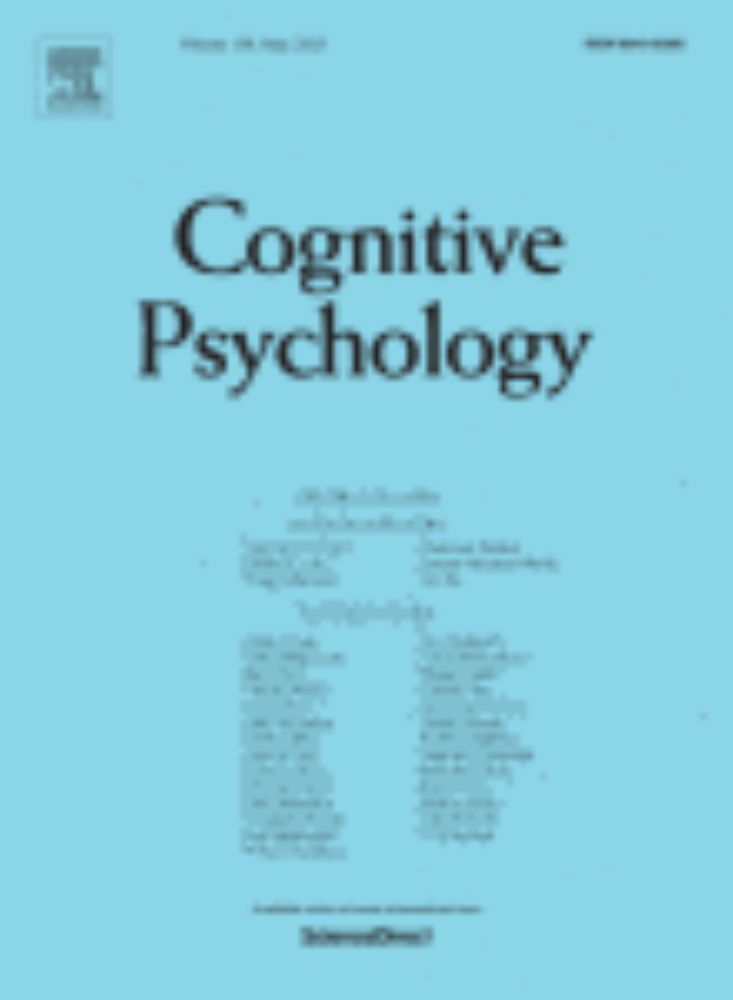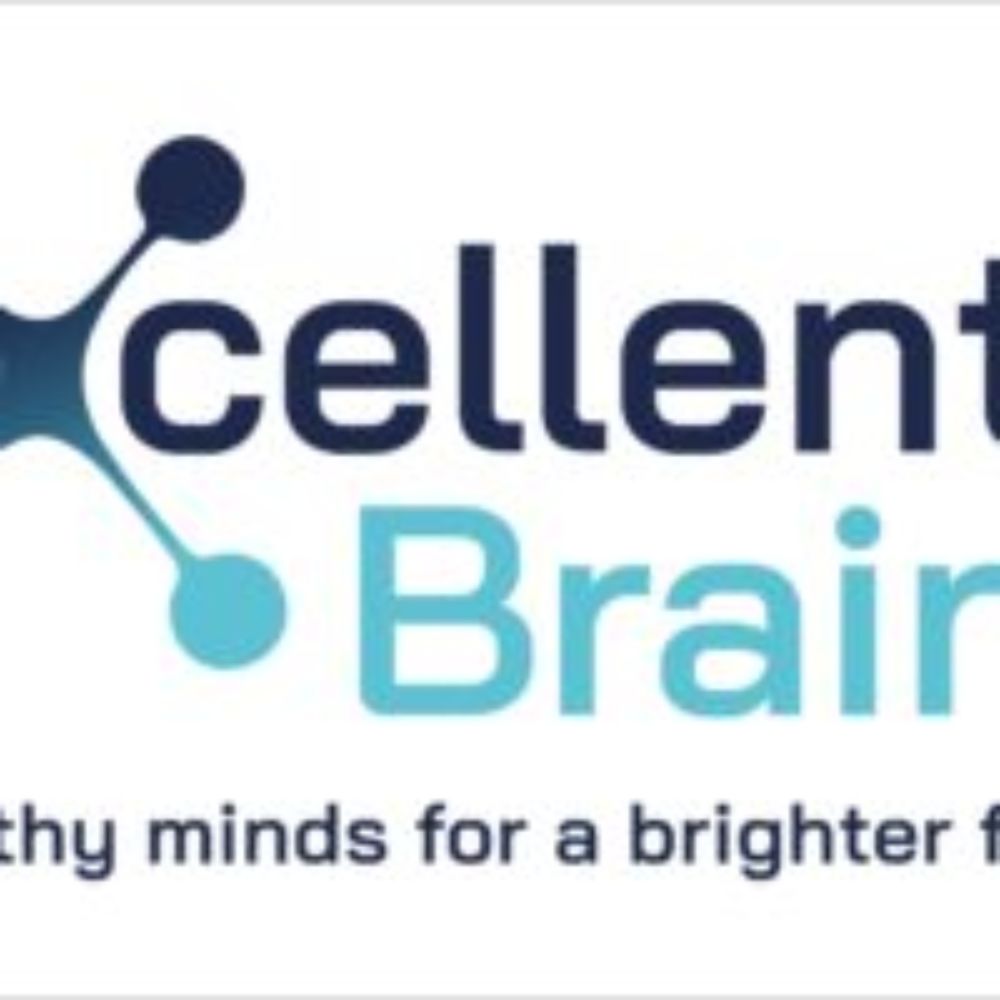
Contact person: For further inquiries please contact Katalin Szigeti, PhD, the Training Unit Coordinator of the CoE (margit.katalin.szigeti@univie.ac.at).
Are you passionate about neuroimaging methods and would like to work with us? 🚨
4-year PhD position on methods development in the new Cluster of Neuronal Circuits in Health and Disease (coe.univie.ac.at) and the role of GABA in the amygdala and other brain areas 🧠
Details: shorturl.at/EcI2W
Pls 🔁
03.06.2025 07:47 —
👍 5
🔁 7
💬 0
📌 1
In summary: starting from first-principles, we derived a process of cascading episodic retrieval – and offer evidence to support key predictions. This cascading recall bridges previously disjointed theoretical frameworks, and offers new insights into a range of phenomena (16/16).
10.06.2025 18:32 —
👍 0
🔁 0
💬 1
📌 0
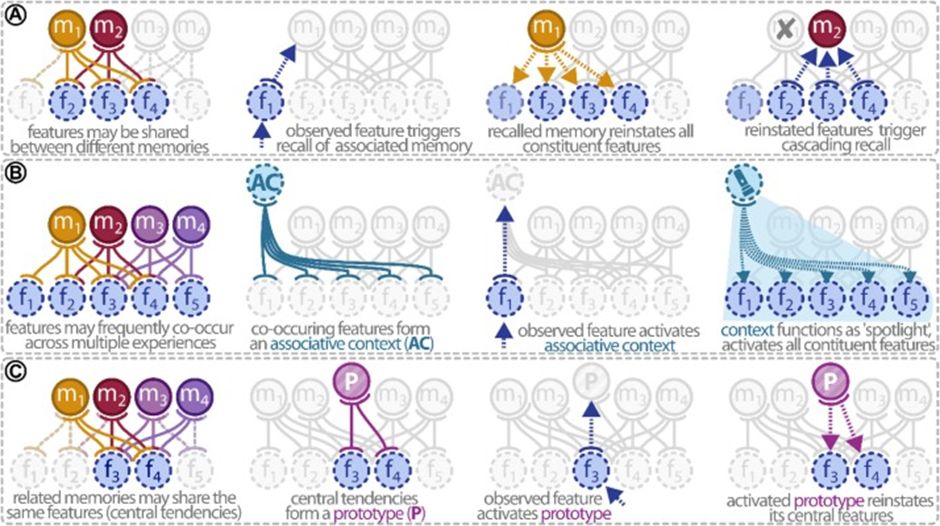
... as well as models based on abstract representations and prototype models. (15/16)
10.06.2025 18:31 —
👍 0
🔁 0
💬 1
📌 0

...the temporal context model, (14/16)
10.06.2025 18:31 —
👍 0
🔁 0
💬 1
📌 0

... Exemplar-based models... (13/16)
10.06.2025 18:31 —
👍 0
🔁 0
💬 1
📌 0
In addition, cascading retrieval is entirely consistent with (and offers new insights into)... (12/16)
10.06.2025 18:30 —
👍 0
🔁 0
💬 1
📌 0
So what’s the big deal? It turns out that this cascading process bridges between (and adds to) several models in memory and memory-based decision-making – merging similarity-based models, limited sampling models, models of hippocampal generalization and associative recall. (11/16)
10.06.2025 18:30 —
👍 1
🔁 0
💬 1
📌 0
This is indeed what we observed in experiment 2: if cued recall is not available, participants next rely on a cascading recall process to draw additional memories – providing empirical support for our hypothesized search process. (10/16)
10.06.2025 18:30 —
👍 0
🔁 0
💬 1
📌 0
However, the toy associated to this Fennimal was not available to give to the new Fennimal. Cascading recall predicts that participants continue memory search by reinstating all features of the cued Fennimal. These features trigger the retrieval of an additional experience. (9/16)
10.06.2025 18:30 —
👍 0
🔁 0
💬 1
📌 0
What toy would they pick instead? Cascading recall makes a clear prediction: when observing the new Fennimal, participants are predicted to first retrieve the similar Fennimal from the training-phase (cued recall)... (8/16)
10.06.2025 18:30 —
👍 0
🔁 0
💬 1
📌 0
Our key prediction was tested in exp 2. Here we created paired training-phase Fennimals, both of which shared a same feature. Participants then encountered a new Fennimal but could not select the toy previously given to the similar-looking Fennimal in the training phase. (7/16)
10.06.2025 18:29 —
👍 0
🔁 0
💬 1
📌 0
These new Fennimals always shared one feature (either a head or color) with exactly one of the training-phase Fennimals. Participant then had to select one of multiple available toys to give to this Fennimal. But not all toys would be available in all experiments... (6/16)
10.06.2025 18:29 —
👍 0
🔁 0
💬 1
📌 0
In each experiment we first trained participants to interact with a limited number of Fennimals, matching different Fennimals with different toys. Participants then encountered a new set of Fennimals during the second phase of the experiment. (5/16)
10.06.2025 18:29 —
👍 0
🔁 0
💬 1
📌 0
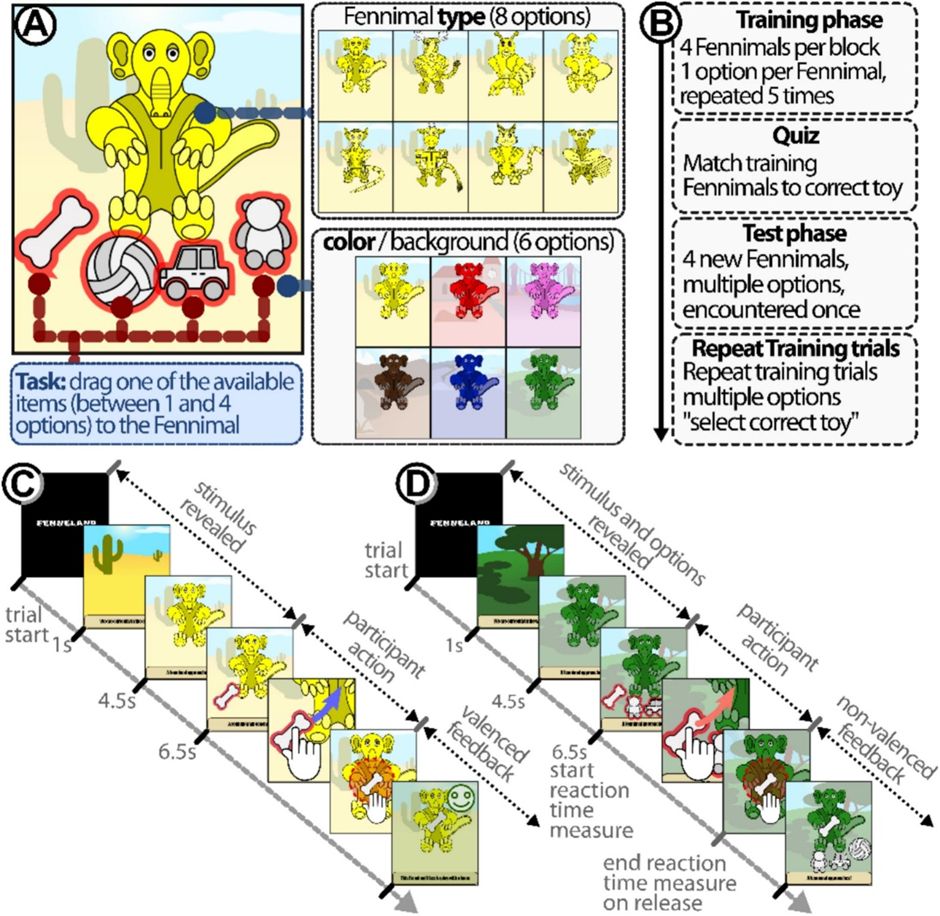
We test our theoretical predictions by having participants interact series of fantasy animals, dubbed Fennimals. These Fennimals consist of two variable features: their heads and their background/colour-schemes. (4/16)
10.06.2025 18:29 —
👍 0
🔁 0
💬 1
📌 0
Observing a stimulus triggers the (cued) recall of a memory. If this memory is not sufficiently informative, then it next reinstates all the memory’s features. These features form the inputs to sample an additional memory in a subsequent recall step, and so forth. (3/16)
10.06.2025 18:28 —
👍 0
🔁 0
💬 1
📌 0
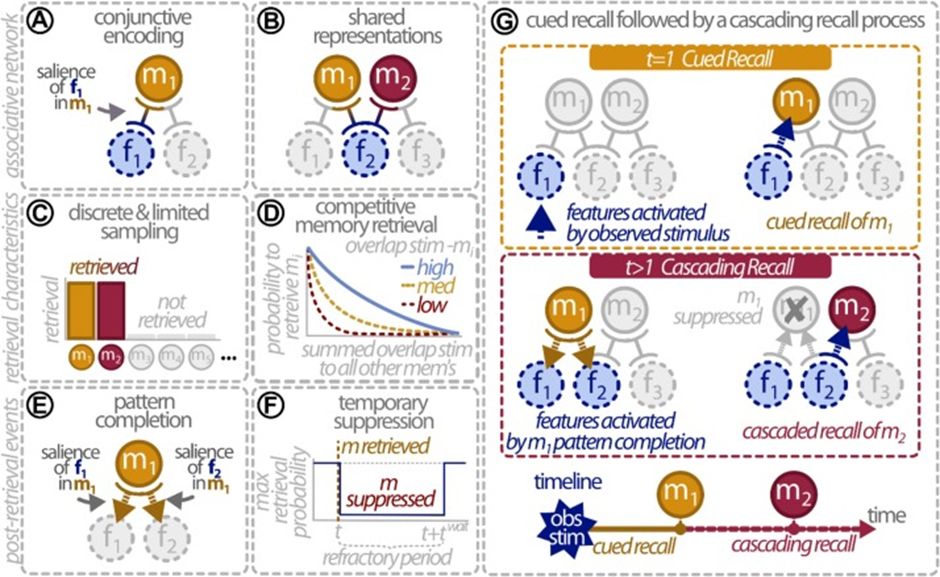
We started off by formulating six key principles concerning the storage and retrieval of episodic memories. We then build on these principles to propose a cognitive mechanism which allows for the retrieval of relevant past experiences through a process of cascading recall. (2/16)
10.06.2025 18:27 —
👍 0
🔁 0
💬 1
📌 0
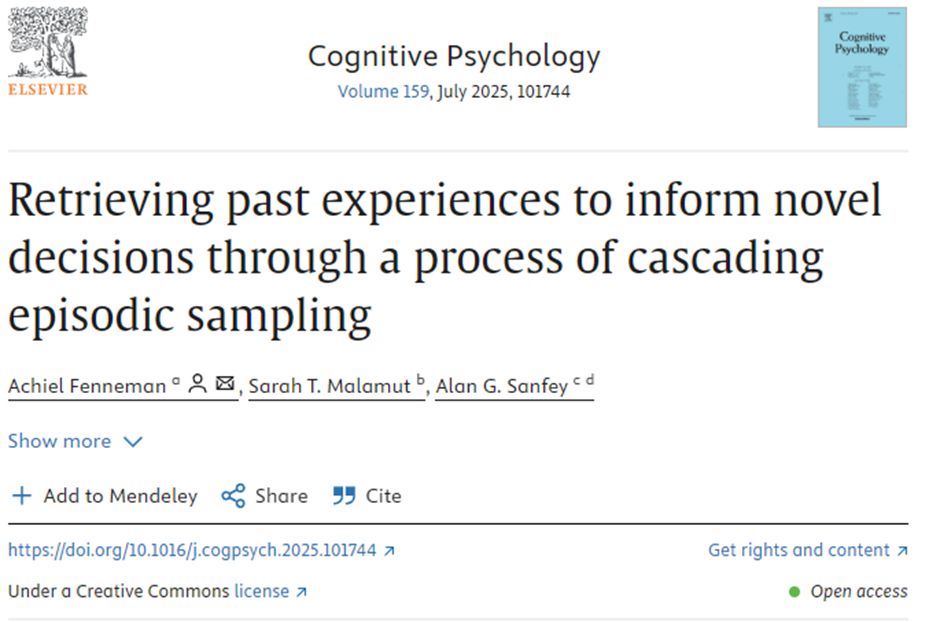
New paper! When encountering a novel and unfamiliar situation, what mechanisms underly our ability to search and retrieve relevant past experiences? We answer this question by taking first-principles approach – allowing us to bridge between a wide range of previous models (1/16)
10.06.2025 18:26 —
👍 8
🔁 3
💬 1
📌 0

